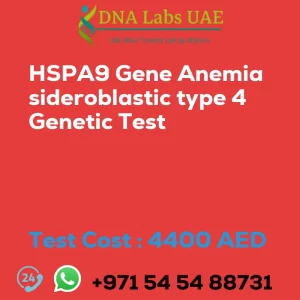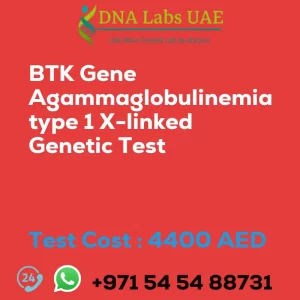First Trimester Triple Marker Test Cost AED: 700.0 – Symptoms, Diagnosis, and More
Are you pregnant and looking for comprehensive prenatal screening tests? DNA Labs UAE offers the First Trimester Triple Marker Test, a blood test that assesses the risk of certain chromosomal abnormalities in your fetus. In this blog, we will provide you with detailed information about the test, its components, cost, symptoms, diagnosis, and more.
Test Name: First Trimester Triple Marker Test
Components:
- Free Beta HCG
- Pregnancy Associated Plasma Protein A (PAPP-A)
- Placental Growth Factor (PlGF)
- Risk Assessment for early and late onset Pre-eclampsia
- Risk Assessment for Trisomy 13, 18 & 21
Price: 700.0 AED
Sample Condition:
3 ml (1.5 ml min.) serum from 1 SST. Ship refrigerated or frozen. The test is valid between 10-13 weeks gestation. Please provide the following details: maternal Date of birth (dd/mm/yy), Height, weight, IVF, Smoking, History of blood pressure, Diabetes and Preeclampsia in previous pregnancy, Previous h/o trisomy birth, Two readings of Blood pressure measurement for each arm, USG report between 11-13 weeks gestation including CRL, NT & Nasal Bone, number of fetuses, Uterine artery PI in Maternal Serum Screen Form (Form 11) & Preeclampsia Screening Form (Form 13).
Report Delivery:
Sample collection on Tue / Thu / Sat by 9 am. Same-day report delivery.
Method: ECLIA
Test Type: Pre-eclampsia
Doctor: Gynecologist
Test Department: IMMUNOASSAY
Pre Test Information:
The test is valid between 10-13 weeks gestation. Please provide details in Maternal Serum Screen requisition form (Form 11) & Preeclampsia screening form (Form 13).
What is the First Trimester Triple Marker Test?
The First Trimester Triple Marker Test, also known as the First Trimester Screening, is a prenatal test that is typically done between 11 and 14 weeks of pregnancy. It is a blood test that measures the levels of three substances in the mother’s blood: human chorionic gonadotropin (hCG), pregnancy-associated plasma protein-A (PAPP-A), and alpha-fetoprotein (AFP).
The test is used to assess the risk of certain chromosomal abnormalities in the fetus, such as Down syndrome (trisomy 21), Edwards syndrome (trisomy 18), and neural tube defects. By measuring the levels of these substances, the test can provide an estimate of the likelihood of these conditions being present in the fetus.
The results of the First Trimester Triple Marker Test, along with the mother’s age and other factors, are used to calculate a risk score. This risk score can help healthcare providers determine whether further diagnostic testing, such as amniocentesis or chorionic villus sampling, is necessary.
It is important to note that the First Trimester Triple Marker Test is a screening test, not a diagnostic test. A positive result does not mean that the fetus has a chromosomal abnormality, but rather indicates an increased risk. Further testing is usually recommended to confirm the diagnosis.
Overall, the First Trimester Triple Marker Test can provide valuable information about the risk of certain chromosomal abnormalities in the fetus, allowing parents to make informed decisions about their pregnancy.
| Test Name | FIRST TRIMESTER TRIPLE MARKER Test |
|---|---|
| Components | *Free Beta HCG *Pregnancy Associated Plasma Protein A (PAPP-A) *Placental GrowthFactor (PlGF)*Risk Assessment for early and late onset Pre-ecclampsia*Risk Assessment for Trisomy 13, 18 & 21 |
| Price | 700.0 AED |
| Sample Condition | 3 ml (1.5 ml min.) serum from 1 SST. Ship refrigerated or frozen.Test is valid between 10-13 weeks gestation. Provide maternal Date of birth (dd\/mm\/yy); Height, weight, IVF, Smoking, History of blood pressure, Diabetes and Preeclampsia in previous pregnancy, Previous h\/o trisomy birth, Two readings of Blood pressure measurement for each arm; USG report between 11-13 weeks gestation including CRL, NT & Nasal Bone, number of fetuses, Uterine artery PI in Maternal Serum Screen Form (Form 11) & Preeclampsia Screening Form (Form 13). |
| Report Delivery | SampleTue / Thu / Sat by 9 am?? Report Same Day |
| Method | ECLIA |
| Test type | Pre-eclampsia |
| Doctor | Gynecologist |
| Test Department: | IMMUNOASSAY |
| Pre Test Information | Test is valid between 10-13 weeks gestation. Provide details inMaternal Serum Screen requisition form (Form 11) & Preeclampsia screening form (Form 13). |
| Test Details |
The First Trimester Triple Marker Test, also known as the First Trimester Screening, is a prenatal test that is typically done between 11 and 14 weeks of pregnancy. It is a blood test that measures the levels of three substances in the mother’s blood: human chorionic gonadotropin (hCG), pregnancy-associated plasma protein-A (PAPP-A), and alpha-fetoprotein (AFP). The test is used to assess the risk of certain chromosomal abnormalities in the fetus, such as Down syndrome (trisomy 21), Edwards syndrome (trisomy 18), and neural tube defects. By measuring the levels of these substances, the test can provide an estimate of the likelihood of these conditions being present in the fetus. The results of the First Trimester Triple Marker Test, along with the mother’s age and other factors, are used to calculate a risk score. This risk score can help healthcare providers determine whether further diagnostic testing, such as amniocentesis or chorionic villus sampling, is necessary. It is important to note that the First Trimester Triple Marker Test is a screening test, not a diagnostic test. A positive result does not mean that the fetus has a chromosomal abnormality, but rather indicates an increased risk. Further testing is usually recommended to confirm the diagnosis. Overall, the First Trimester Triple Marker Test can provide valuable information about the risk of certain chromosomal abnormalities in the fetus, allowing parents to make informed decisions about their pregnancy. |








